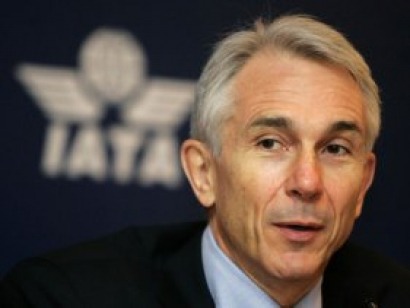
The IATA (International Air Transport Association) represents some 230 airlines comprising 93% of scheduled international air traffic. In November, the association’s Director General and CEO, Tony Tyler, gave an address at the IATA Fuel Forum taking place in Paris (France), highlighting that “air transport needs fuel that is safe, used in an environmentally responsible manner, with a reliable supply and at reasonable cost”.
Tyler noted the creation of a manual of global standards for fuel supply, storage and provision as an example of what can be achieved when stakeholders work together. “Safety always comes first. Recent incidents involving fuel contamination show the need for systems and processes that keep the fuel supply safe. Working together with the International Civil Aviation Organization (ICAO) and the Air Transport Association (ATA) we are producing the first manual of global standards for fuel supply, storage and provision though the ICAO processes. This is a true innovation in how we manage fuel with standards, best practices and procedures to safeguard quality throughout the fuel supply chain—from the refinery to when it is delivered into the aircraft,” commented Tyler.
Tyler urged similar cooperation on environment and commercial issues. “Fuel is closely linked to one of aviation’s great challenges—to reduce its carbon emissions. Airlines are responsible for 2% of global manmade carbon dioxide emissions. Aviation must be sustainable. Sustainability is our license to grow and provide the connectivity that has turned our planet into a global community. We have embraced this with commitments to improve fuel efficiency by 1.5% annually to 2020, cap net emissions from 2020 and cut net emissions in half by 2050 compared to 2005 levels.”
Sustainable biofuels key
Tyler cited the importance of introducing sustainable biofuels to this effort. “Sustainable biofuels are safe, approved and airlines are using them for commercial flights. With the potential to cut aviation’s carbon footprint by up to 80% over the lifecycle of the fuel, sustainable biofuels have the potential to be a game changer. But they are still expensive and supply is limited. In other words, we need to commercialize them,” he said.
“There is an opportunity for both our traditional suppliers and new entrants to engage in this exciting development. We need to work together and speak with a common voice. That is the way to convince governments to provide the right policies to develop a sustainable aviation biofuel industry.”
Tyler outlined six steps for governments to promote the successful commercialization of sustainable biofuels:
“Such policies would help increase volumes and drive down costs—exactly what is needed to move forward. And at this time of global uncertainty, it makes sense for governments to invest in sustainable biofuels that will increase energy self-sufficiency and create jobs in the green economy,” he said.
In 2011, the industry’s fuel bill is expected to be $176 billion (30% of operating costs) based on oil at $110 per barrel. In 2012, the fuel bill is expected to reach $201 billion (32% of operating costs) based on an average oil price $100 per barrel. Overall industry profitability is expected to decline from $6.9 billion (1.2% net margin) in 2011 to $4.9 billion (0.8% net margin) in 2012. It is hoped that biofuels can help reverse this trend.
Read Tony Tyler's full speech here.
For additional information:

